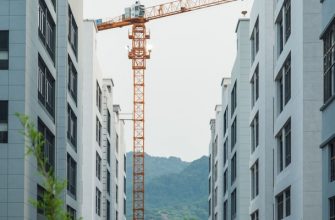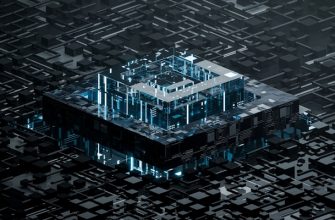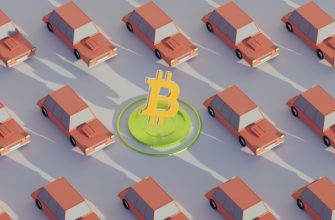- Understanding Real World Assets (RWA) in the Context of Real Estate
- The Intersection of Blockchain Technology and Physical Assets
- How Blockchain is Revolutionizing Real Estate Transactions
- The Benefits of Tokenizing Real Estate through RWA
- Challenges and Opportunities in Integrating RWA with Blockchain
- Future Trends: The Role of RWA in the Digital Real Estate Market
Understanding Real World Assets (RWA) in the Context of Real Estate
Real World Assets (RWA) represent a significant evolution in the intersection of physical properties and digital technologies, particularly in the realm of real estate. The integration of blockchain technology with RWAs has transformed how ownership, investment, and transaction processes are conducted in the property sector. By leveraging blockchain, RWAs in real estate create a more transparent, secure, and efficient framework for property transactions.
One of the key advantages of utilizing RWAs in real estate is the ability to tokenize physical assets. Tokenization allows real estate properties to be divided into smaller shares, enabling fractional ownership. This innovation opens the market to a broader range of investors, making real estate investment more accessible. Additionally, tokenized RWAs can be easily traded on blockchain platforms, enhancing liquidity in the traditionally illiquid real estate market.
- Transparency: Blockchain technology ensures that all transactions related to RWAs are recorded on a public ledger, providing unprecedented transparency in property ownership and history.
- Security: The decentralized nature of blockchain enhances the security of transactions, reducing the risks associated with fraud and unauthorized transfers of ownership.
- Efficiency: Smart contracts automate many processes involved in real estate transactions, significantly reducing the time and costs associated with traditional methods.
- Accessibility: Tokenization of RWAs makes it possible for smaller investors to participate in real estate markets, democratizing access to property investments.
Furthermore, RWAs in real estate can integrate with decentralized finance (DeFi) systems, allowing property owners and investors to leverage their assets for loans or other financial services. This synergy between RWAs and DeFi expands the financial opportunities available to real estate stakeholders, creating a more dynamic investment environment.
As the adoption of RWAs in real estate continues to grow, it is essential for stakeholders to understand the implications of this integration. The combination of physical assets with blockchain technology not only enhances the operational aspects of real estate but also transforms the way investors, buyers, and sellers engage with properties. The future of real estate is undoubtedly intertwined with the development and implementation of RWAs, paving the way for a more innovative and inclusive market.
The Intersection of Blockchain Technology and Physical Assets
The integration of blockchain technology into the realm of physical assets, particularly real estate, represents a groundbreaking shift in how ownership, transactions, and asset management are approached. By leveraging the unique properties of blockchain, stakeholders in the real estate market can enhance transparency, security, and efficiency in managing physical assets.
Blockchain technology offers a decentralized ledger that records transactions in an immutable manner. This characteristic ensures that ownership records of real estate properties are securely maintained, reducing the possibility of fraud and disputes over ownership. In addition, the use of smart contracts can automate various processes, such as the transfer of ownership and payment, further streamlining real estate transactions.
- Transparency: Blockchain enables all parties involved in a real estate transaction to access the same information, thus minimizing misunderstandings and enhancing trust.
- Security: The cryptographic nature of blockchain ensures that data related to physical assets remains secure, protecting it from unauthorized access and manipulation.
- Fractional Ownership: Through tokenization, real estate assets can be divided into smaller shares, allowing more investors to participate in the market and increasing liquidity.
- Efficiency: Smart contracts facilitate automatic execution of agreements, significantly reducing the time and costs associated with traditional real estate transactions.
As blockchain technology continues to evolve, its intersection with physical assets such as real estate is poised to redefine investment strategies and ownership models. Investors and developers increasingly recognize the potential of blockchain to not only simplify operations but also open new avenues for revenue generation through enhanced asset management.
In conclusion, the interaction between blockchain technology and physical assets in real estate is not merely a trend but a fundamental transformation that promises to shape the future of ownership and investment in the sector. By embracing these innovations, stakeholders are better equipped to navigate the complexities of the modern real estate landscape.
How Blockchain is Revolutionizing Real Estate Transactions
Blockchain technology is transforming the landscape of real estate transactions by introducing unprecedented levels of transparency, security, and efficiency. The integration of blockchain with physical assets, such as real estate, allows for a seamless interaction between tangible properties and digital records. This synergy is creating a new paradigm in how real estate deals are conducted, paving the way for a more streamlined process.
One of the key benefits of utilizing blockchain in real estate transactions is the reduction of fraud. Traditional methods of buying and selling properties often involve multiple intermediaries, which can lead to inconsistencies and vulnerabilities. By leveraging blockchain, all transactions are recorded on a secure, immutable ledger. This means that every transfer of ownership is transparent and verifiable, significantly minimizing the risks of fraudulent activities.
- Enhanced Transparency: Every transaction is easily accessible and verifiable, allowing all parties involved to review the entire transaction history.
- Improved Security: The decentralized nature of blockchain protects sensitive information from unauthorized access, ensuring the integrity of real estate transactions.
- Faster Transactions: Smart contracts can automate various aspects of the transaction process, significantly reducing the time required to close deals.
- Lower Costs: By eliminating the need for intermediaries, blockchain technology can reduce transaction costs associated with real estate transfers.
Moreover, the tokenization of real estate assets is revolutionizing how investments are approached. Through tokenization, physical properties can be divided into digital tokens, allowing for fractional ownership. This democratizes access to real estate investments, enabling a broader range of investors to participate in the market. Consequently, blockchain is reshaping the investment landscape by making it more inclusive and accessible.
As the real estate industry continues to embrace blockchain technology, it is poised to experience significant advancements. The combination of physical assets and blockchain not only enhances transaction efficiency but also fosters a more trustworthy environment for buyers and sellers alike. The future of real estate transactions is undoubtedly intertwined with the evolution of blockchain technology, heralding a new era of innovation in the industry.
The Benefits of Tokenizing Real Estate through RWA
Tokenizing real estate through RWA (Real World Assets) presents numerous advantages that revolutionize the way physical properties are managed and traded. By integrating blockchain technology with real estate assets, investors can experience enhanced liquidity, improved transparency, and reduced transaction costs. The process of tokenization allows traditional real estate properties to be represented as digital tokens, thereby democratizing access to investment opportunities.
- Increased Liquidity: Tokenizing real estate enables fractional ownership, allowing investors to purchase smaller shares of high-value properties. This increased liquidity encourages a broader range of investors to participate in the real estate market.
- Enhanced Transparency: The use of blockchain technology ensures that all transactions are recorded immutably, providing a clear and verifiable history of ownership and transactions. This transparency builds trust among investors and stakeholders.
- Lower Transaction Costs: Traditional real estate transactions often involve numerous intermediaries, leading to high fees and lengthy processes. Tokenization simplifies these transactions by minimizing the need for middlemen, resulting in significant cost savings.
- Global Accessibility: Tokenized real estate can be traded on various platforms, allowing international investors to access local markets. This global reach expands the pool of potential buyers and investors.
- Improved Security: Blockchain technology provides enhanced security through cryptographic techniques, reducing the risk of fraud and ensuring the integrity of ownership records.
In summary, the tokenization of real estate through RWA not only enhances the efficiency of transactions but also opens new avenues for investment. By leveraging blockchain technology, it creates a more accessible and secure real estate market, ultimately benefiting both investors and property owners alike.
Challenges and Opportunities in Integrating RWA with Blockchain
Integrating Real World Assets (RWA) with blockchain technology presents both challenges and opportunities in the real estate sector. The intersection of physical assets and digital ledgers can transform how property transactions are conducted, yet several hurdles must be addressed to harness this potential effectively.
- Regulatory Challenges: Navigating the complex landscape of regulations is crucial. Different jurisdictions have varying laws regarding the use of blockchain in real estate, which can hinder widespread adoption.
- Technological Barriers: The integration of RWAs into blockchain requires robust technological infrastructure. Issues such as interoperability between existing systems and blockchain networks need to be resolved.
- Market Acceptance: Stakeholders in the real estate market, including buyers, sellers, and investors, may be hesitant to embrace blockchain. Education and awareness are necessary to facilitate acceptance.
- Data Security: Ensuring the security of sensitive information on blockchain platforms is paramount. Concerns about data breaches and unauthorized access could impede trust in RWA integration.
Despite these challenges, the opportunities presented by integrating RWAs with blockchain are significant.
- Increased Transparency: Blockchain technology enhances transparency in property transactions, providing a tamper-proof record of ownership and history.
- Improved Liquidity: Tokenization of real estate assets can facilitate fractional ownership, allowing investors to buy and sell shares in properties easily, thus enhancing liquidity.
- Cost Efficiency: Streamlining processes through smart contracts can reduce transaction costs and time associated with traditional real estate transactions.
- Global Access: Blockchain enables cross-border transactions, allowing investors from different regions to access real estate markets that were previously closed off due to geographic barriers.
In conclusion, the integration of RWAs with blockchain technology in real estate is a double-edged sword. While challenges such as regulatory issues and market acceptance remain, the potential benefits like increased transparency and improved liquidity present a compelling case for further exploration and development in this innovative intersection.
Future Trends: The Role of RWA in the Digital Real Estate Market
The digital real estate market is experiencing a significant transformation driven by the integration of Real World Assets (RWA) and blockchain technology. This convergence is reshaping how assets are valued, traded, and managed. With the advent of decentralized finance (DeFi) and non-fungible tokens (NFTs), RWAs are being tokenized, enabling fractional ownership and increased liquidity. This shift is not just a trend but a foundational change that promises to redefine property ownership.
As the digital landscape evolves, the role of RWAs in real estate will become increasingly pivotal. The ability to verify ownership and transfer assets securely through blockchain reduces fraud and enhances trust in transactions. This security is crucial in a market where transparency and authenticity are paramount.
- Increased Accessibility: Tokenization of RWAs allows a broader range of investors to participate in the real estate market, breaking down traditional barriers such as high entry costs.
- Enhanced Liquidity: By converting physical assets into digital tokens, RWAs can be traded on secondary markets, providing liquidity that was previously unavailable in traditional real estate.
- Streamlined Transactions: Smart contracts facilitate automatic execution of agreements, reducing the need for intermediaries and expediting the buying and selling process.
- Global Reach: The digital nature of RWAs enables international investment opportunities, allowing individuals from different countries to invest in real estate markets without geographical constraints.
- Data Utilization: Blockchain technology offers a secure way to store and share property data, enhancing market analysis and decision-making for investors and developers alike.
The future of RWAs in the digital real estate realm is promising, with potential implications for property valuation, investment strategies, and market dynamics. As technology continues to advance, the integration of RWAs with blockchain will likely lead to innovative solutions that further disrupt traditional real estate practices. Stakeholders in the real estate sector must adapt to these changes, embracing the opportunities presented by RWAs to stay competitive in an evolving market.









